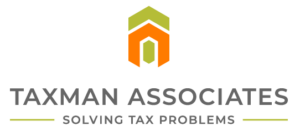Tax Tip #1: Report All of Your Income
One of the most common reasons people are audited is that they fail to report all of their income. The IRS gets copies of all of the W-2’s and 1099’s that you receive, so don’t try to hide this income. They already know about it.
If you have income from capital gains, make sure you fill out your Schedule D completely and don’t accidently leave out any transactions.
If you are in a business with a large number of cash transactions, then you already have a higher chance of an audit. Make sure you report all of your cash and keep good records. If you have any miscellaneous income, make sure you report all of those earnings as well.
Tax Tip #2: Claim Your Dependents Properly
It’s important that you understand the rules for whom you can and cannot claim as a dependent. If 2 people claim the same person as a dependent, it is usually an immediate red flag to the IRS. This is especially true for tax breaks like the Earned Income Credit. Because there is a lot of fraud when it comes to claiming the EIC, the IRS is even more vigilant about monitoring it.
The IRS provides an Interactive Tax Assistant (ITA) on the IRS.gov website to help you determine who you can claim as a dependent.
Tax Tip #3: Double-Check Your Math
Another common cause of tax audits is mathematical errors. Most tax preparation software will do the calculations for you, which reduces your chances of making a critical mistake. If you are preparing your taxes yourself, make sure to double- and triple-check all of your work.
One of the biggest problems with tax returns is that many people incorrectly add their income from their W-2. Often times, the IRS will correct this simple math error… but you will still want to avoid this potential extra scrutiny.
Tax Tip #4: Know the Rules for Home Office Deductions
The rules regarding home office tax deductions are tricky and often taken advantage of. Because of this, tax returns that claim the home office deduction will face higher scrutiny from the IRS. To avoid a tax audit, make sure you know and follow the rules.
Tax Tip #5: Be Careful with Meals and Entertainment Deductions
Make sure your documentation is in place if you plan on claiming any tax deductions for business meals, travel, or entertainment. If you are traveling to places that are also typical vacation spots, it is especially important for your receipts and records to be well maintained.
For more information, please see IRS Publication 463 (Travel, Entertainment, Gift, and Car Expenses).
Tax Tip #6: Stick with Deductions Typical for Your Income Level
The closer you stick to credits and deductions that are typical for your income bracket, your chances of being audited will be lower. This is especially true if you are claiming an unusually large number of miscellaneous deductions on Schedule A. If you can legitimately claim a tax deduction then you definitely should, but make sure you have good documentation because your tax return may trigger a warning at the IRS.
Average deductions on 2011 Tax Returns:
|
Adjusted |
Medical |
Taxes |
Interest |
Charitable |
|
$50,000 to $100,000 |
$7,312 |
$6,111 |
$9,320 |
$2,815 |
|
$100,000 to $200,000 |
$9,932 |
$10,860 |
$12,093 |
$3,857 |
|
$200,000 to $250,000 |
$19,850 |
$18,078 |
$16,450 |
$5,824 |
|
$250,000 or more |
$30,408 |
$47,178 |
$23,194 |
$19,651 |
SOURCE: Wolters Kluwer, CCH: 2013
Best Tax Tip of the Day: Hire me or someone with a lot of Tax experience that may cost you a little money but will save you LOTS of money and heartache.

